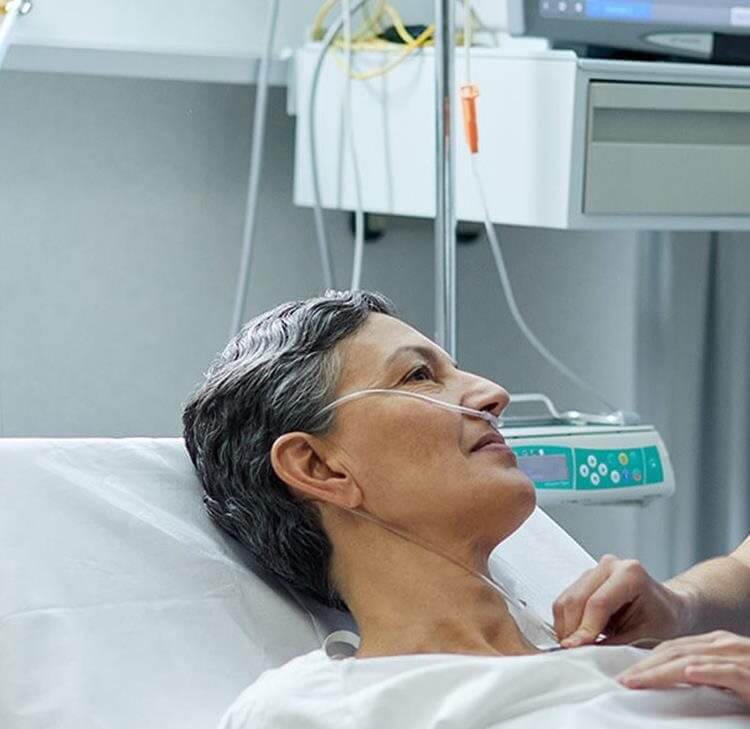Browne Jacobson successfully advises NHS Resolution on fraud case
In one of the most significant fraud findings for the NHS, Lesley Elder, 51, was handed a 5-month custodial sentence for contempt of court for dishonestly claiming in excess of £2.3 million in compensation.
In one of the most significant fraud findings for the NHS, Lesley Elder, 51, was handed a 5-month custodial sentence for contempt of court for dishonestly claiming in excess of £2.3 million in compensation.
Browne Jacobson LLP, instructed by NHS Resolution on behalf of George Eliot Hospital NHS Trust in Nuneaton, successfully demonstrated that the claim was, beyond doubt, a significant attempt to defraud the NHS.
Sentencing in the High Court on 5 April, HHJ Walden-Smith found the false statements she made constituted a 'very serious contempt' and the attempt to defraud the NHS in excess of £2m would have deprived the Trust of public funds desperately needed for frontline services.
Paul Wainwright, partner and head of counter-fraud at Browne Jacobson LLP said:
“This has been a troubling case. In the face of a genuine compensation claim, which was admitted at a very early stage by the Trust, Mrs Elder lied to experts, in statements and before the court to dishonestly exaggerate her claim purely for financial gain. Having been exposed, she maintained the pretence even under cross-examination and without remorse, in the face of these contempt proceedings.
“The court’s sanction of an immediate custodial sentence clearly reflects the very serious nature of the contempt, which undermines the administration of justice, and which originally sought to fraudulently deprive the NHS of a significant sum of money.
“Despite being awarded compensation, Mrs Elder has yet to receive the full damages awarded by HHJ Hughes QC and is unlikely to do so. Whilst she was paid £12,500 by way of interim payments, before her dishonesty was discovered, this is all she is likely to be able to retain. The remainder of her damages are likely to be offset against the costs the NHS incurred in defending her claim and pursuing the contempt proceedings.
“NHS Resolution believes these contempt proceedings and the custodial sentence, will act as a strong deterrent. It is also determined to minimise the financial impact of such cases on NHS Trusts and will pursue full recovery of its costs and damages as a result of fraud or dishonesty, wherever it is found.”
George Eliot Hospital NHS Trust, which had admitted liability at a very early stage following surgery in 2010, was alerted to the apparent unusually high levels of dependency, disability and pain, by their care expert. This prompted further investigation and ultimately disclosure of evidence of Mrs Elder’s deception.
Elder was caught out by surveillance, on shopping trips, carrying her dog to a dog parlour, driving, carrying her grandson, and walking without walking aids, which she stated she could not do. The images captured on social media combined with the surveillance in the Judge’s view “established that she had not suffered the significant disability alleged”.
When the original claim came before HHJ Iain Hughes QC at trial in November 2016, Elder denied giving an account to experts, to advance her financial interests rather than a factual and accurate account of her condition.
Awarding Mrs Elder £120,012 against a claim in excess of £2.3m at the time, Judge Hughes found:
“I have been forced to the conclusion that important elements of this case represented a determined attempt by the claimant to extract several million pounds from the National Health Service by way of a claim that, although founded on a proper and indeed unanswerable complaint, nevertheless was inflated beyond all reason. It was principally supported by the claimant’s evidence that was, in part, dishonest, and in part, grossly exaggerated. I find it especially troubling that the claimant sought to suppress the surveillance evidence and that even after disclosure of the same, the claim, unaltered, proceeded to a full trial. Absent the surveillance evidence, a terrible injustice would have been done to the National Health Service.”
The Trust in bringing contempt proceedings relied on the lengthy written judgment of HHJ Iain Hughes QC handed down in February 2017. Elder had falsely exaggerated and dishonestly misrepresented the extent of the impact on both her physical and mental condition.
William Featherby QC, for the Trust, cited one example of Elder’s dishonesty, relating to her daughter’s hen party in Ibiza, which was denied in statements and further in cross examination, despite being presented with copies of published professional photographs of the event and Facebook images. Many further examples were cited by Judge Walden-Smith from Judge Hughes’ judgment.
Throughout the contempt case Mrs Elder sought to frustrate the committal process, by seeking to avoid attending hearings and at one stage disinstructing her legal team on the eve of a substantive committal hearing. She appeared to lack any remorse, contrition or recognition of the extent of her dishonesty and its impact on the Trust.
Michael Mansfield QC for Mrs Elder presented her as a changed woman deeply affected by her current condition, but at no stage did she give evidence to explain why she had acted as she did. Indeed before the Committal hearing began Mrs Elder was escorted from the court by medical staff as a precaution after it was suspected she had taken an excessive amount of her prescription medication. She was sentenced in her absence.
Contact

Kara Shadbolt
Senior PR & Communication Manager
kara.shadbolt@brownejacobson.com
+44 (0)330 045 1111












![Contractual liability for all inclusive treatment: Bartolomucci v Circle Health Group Limited [2025]](/getattachment/95f9533b-f99c-4fcc-b8d5-3f93904b8242/shutterstock_1265400856.jpg?variant=HeroImageTabletVariantDefinition)



























